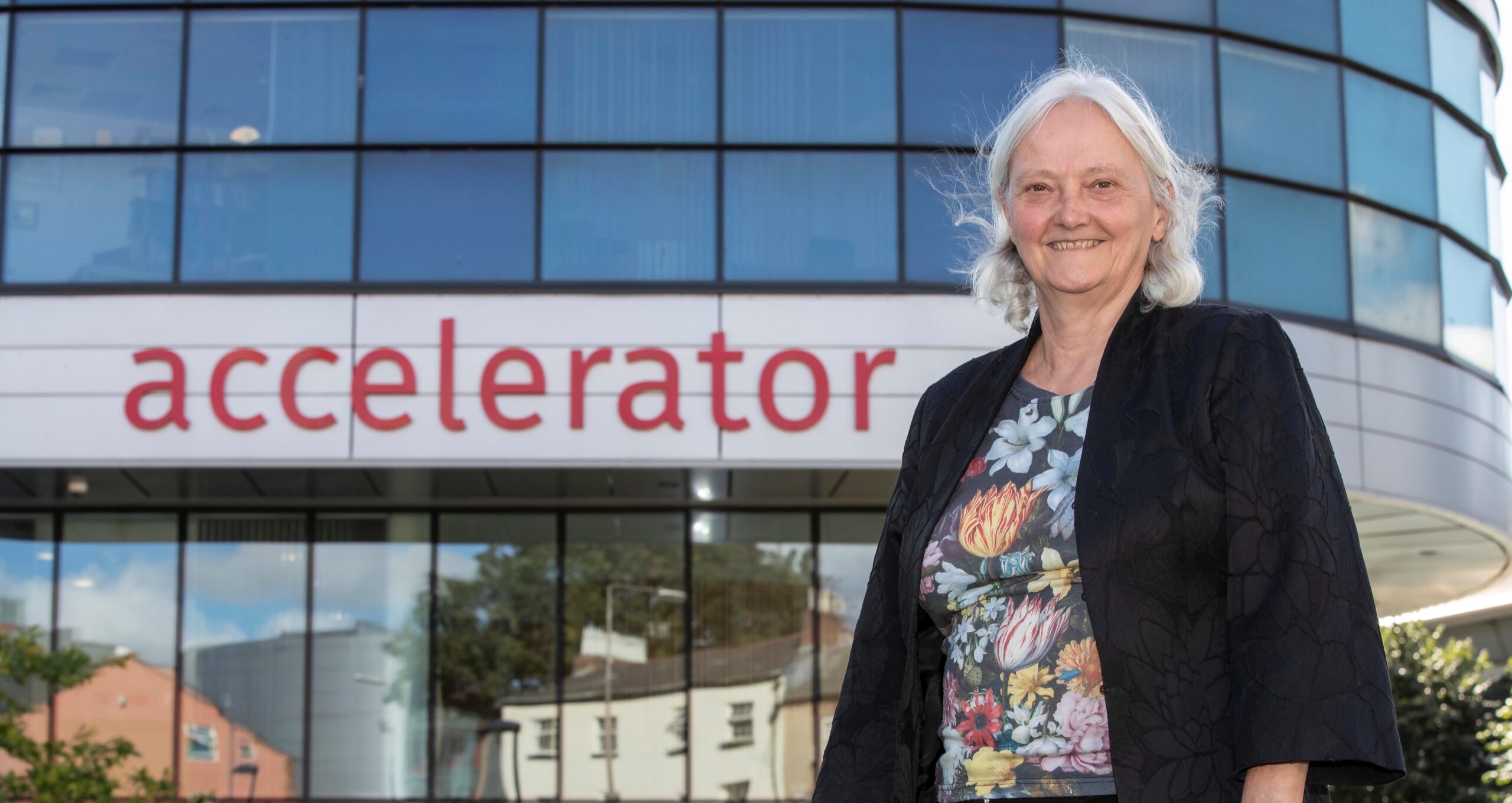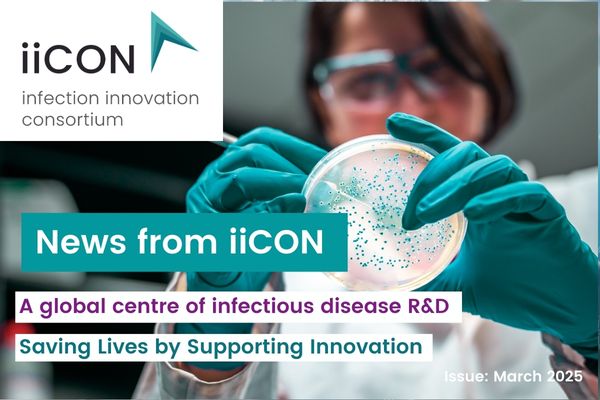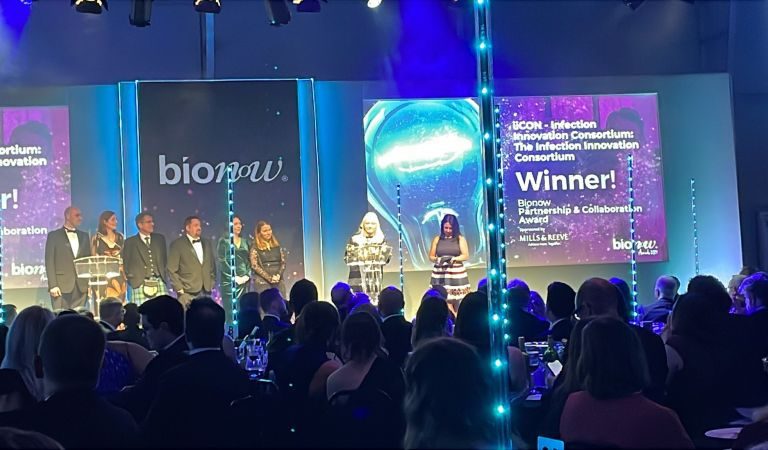- Join the Innovation Journey
- Our Platforms
iiCON’s creation of new high-containment AI labs set for approval

Robotic labs, fighting infections and skills training among first seven Investment Zone projects set for approval
Projects include creation of new high-containment AI labs to accelerate city region’s world-leading infection innovation
£9.5m to support Sci-Tech Daresbury expansion
Other projects include skills training, new drug-making facilities and business and innovation support
Grants totalling £26.5m sought from £160m, 10-year programme
Innovation Zone expected to attract up to £800m investment and create 8,000 jobs
Building robotic labs and expanding Sci-Tech Daresbury are among the first seven Liverpool City Region Innovation Zone projects set for approval.
£26.5m of Innovation Zone funding is being sought to support the seven projects which will cost nearly £83m in total.
They are among 21 projects being developed in the first phase of the 10-year, £160m Life Sciences Investment Zone programme, referred to locally as the Innovation Zone, that’s forecast to create £8,000 jobs and stimulate up to £800m of public and private investment, in addition to AstraZeneca’s £450m investment in its Speke vaccine facility announced in March.
The seven projects include the creation of new £21m high-containment labs by the Liverpool School of Tropical Medicine-led iiCON (Infection Innovation Consortium). The labs will be equipped with robotics and AI that will dramatically accelerate the development of new treatments to fight deadly infections.
Other projects include £9.5m to support a £24m expansion of lab and office space at the North of England’s only national science and innovation campus, Sci-Tech Daresbury.
The Liverpool City Region Combined Authority will consider the seven projects at its meeting on June 7, with final approvals to follow in the coming weeks and months after further scrutiny.
Steve Rotheram, Mayor of the Liverpool City Region, said:
“From the moment I was elected Mayor, it has been one of my priorities to cement our reputation as an attractive environment for businesses to invest.
“We are already home to world leading clusters in life sciences, gaming, advanced computing, and infectious disease control – but I am never content with resting on our laurels. That is why we will invest 5% of local GVA in R&D by the end of the decade, nearly double the national target.
“I truly believe that innovation will be the fuel that powers our economy forward and by establishing ourselves as a hotbed of innovation and new technology, we will be ready to attract many more highly skilled, well-paid jobs, businesses and opportunities from around the world.”
The first seven projects set for approval are:
iiCON Phase 3: Led by the Liverpool School of Tropical Medicine, iiCON (Infection Innovation Consortium) has grown into a £260m programme, delivering 36 new products to market since its creation in 2020. Phase 3 will deliver a new containment level 3 laboratory equipped with robotics and AI for the safe handling of pathogens. The new facility is forecast to support a 10-fold increase in the value and volume of activities, driving forward development of new treatments. iiCON is seeking £10m Innovation Zone funding with additional grant funding from the Wolfson Foundation and RED/UKRI.
Embedded Skills Development Programme: Delivered by St Helens-based surgical simulator creator Inovus, the programme will facilitate 250 practical, skilled work experience placements for young people within health and life sciences over 5 years. It will replace the traditional two-week work experience by embedding 16-18-year-olds within businesses over 4-6 months. The aim is to expand the pilot across all city region boroughs through a network of host businesses to offer around 600 placements in the first five years.
Health Tech Business Incubator: Led by the Science and Technology Facilities Council (STFC), the programme will work to drive innovation and commercialisation of research in the city region’s health and life sciences sector. Start up and early-stage businesses will be offered support including grant funding, support, training and access to Sci-Tech Daresbury’s world-class facilities. The four-year programme is expected to support 30 businesses.
KQ Liverpool Future Innovators Programme: Led by Knowledge Quarter Liverpool, the programme will aim to raise awareness and aspiration for careers in life sciences and will work with local employers to develop traineeships and opportunities for young people.
Microbiome and Infectious Disease Innovation Hub: Led by the University of Liverpool in partnership with the Centre for Process Innovation (CPI), the hub will become a UK leader supporting industry to develop and commercialise microbiome and infectious disease innovations and therapies. This will drive forward preventative medicines and alternatives to antibiotics, helping address antimicrobial resistance.
Pharmaceutical Services – Upstream Monoclonal Antibody Capabilities: TriRx is seeking £2m towards a £12m programme to install enhanced manufacturing facilities at its Speke site. The equipment is expected to increase productivity by 25% and satisfy global demand for monoclonal antibody drugs. The equipment will also contribute to R&D by city region research institutions.
Sci-Tech Daresbury Violet Phase 2: £9.5m is being sought for a £24m project to build 90,000 sqft of containment level 2 ‘grow on’ laboratory and office space, addressing a local and national shortage. Two new buildings will be constructed which are expected to attract high-growth and established tenants resulting in at least 300 new jobs, with around 70-75% at degree-level or equivalent.


